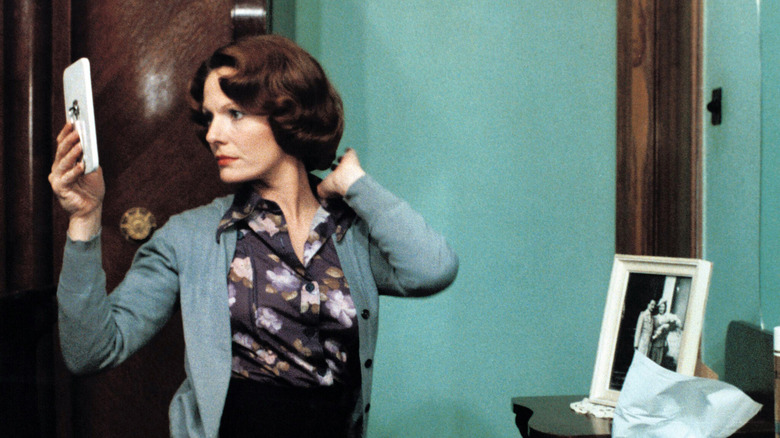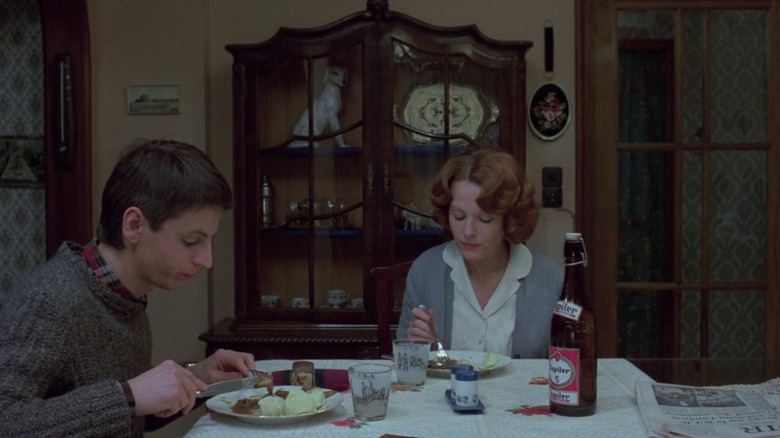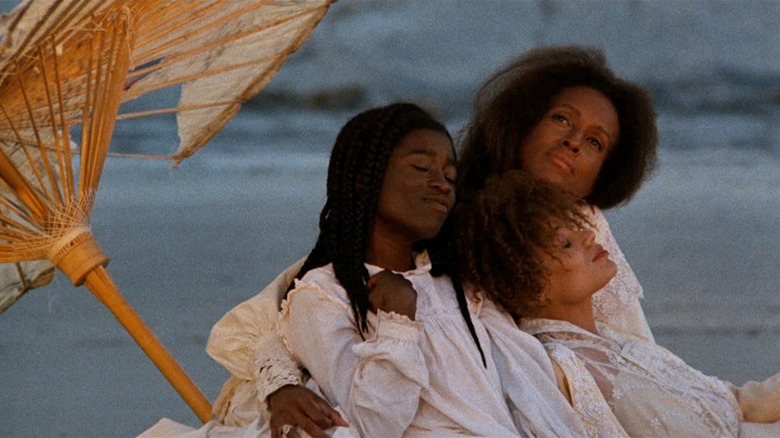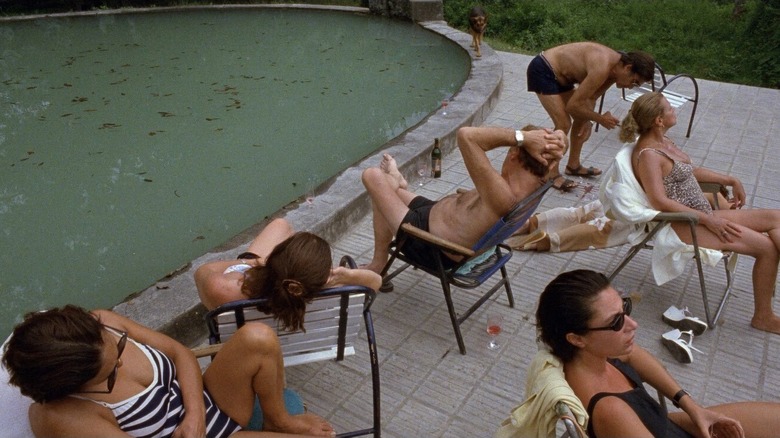The New Number One Film On Sight And Sound's Greatest Movie List Is A Step Forward, But More Needs To Be Done
Unfortunately, like pretty much all arts-based industries, filmmaking is a male-dominated industry. Think about the movies you've been told are core parts of the film canon — "Citizen Kane," "Vertigo," "The Godfather" — and so on and so forth. What do most of them have in common besides bringing significant and positive changes to the medium? They are directed by established men who had proven their talents time and time again. However, outside of a few exceptions, the so-called "film canon" rarely takes female directors and their work into account. While recent history has been more kind to these artists as women's work is increasingly championed across the industry, there are still staggeringly few movies directed by women that have been widely referred to as essential viewing.
However, according to the British Film Institute's Sight and Sound magazine, that might change. That's because their once-a-decade poll on the greatest movies of all time has been updated with a brand-new number one, in the form of "Jeanne Dielman, 23 quai du Commerce, 1080 Bruxelles." The film makes history as not only the fourth film ever to top the list, but the first to be directed by a woman, Chantal Akerman, whose "News From Home" also appears on the list. While there is still a ton of work to do in order to make the prestigious poll more diverse and all-encompassing in its entries, the crowning of "Jeanne Dielman" could signal an important and necessary shift in how we canonize the works of female directors.
Don't read while you eat
The actual story of "Jeanne Dielman" is simple and straightforward — the titular woman (Delphine Seyrig) is a single mother in Belgium who lives a somewhat mundane life. She cooks, cleans, tends to her house, and supports herself through sex work. It seems as if every aspect of her life is repetitive and boring, as demonstrated through the long and uncut takes of her doing simple housework or servicing clients. However, one small change in her routine leads to another, which in turn also leads to another change. These differences in her daily routine make a profound impact on Jeanne, for better and for worse.
While not explicitly a feminist film at first glance, "Jeanne Dielman" showcases the quiet anxieties and pressures many women end up facing in their daily lives. There is a demand to be perfect at nearly all times, even when you think nobody is looking, but there is only so much "perfection" that one can achieve. Because of this, the film has become synonymous with second-wave feminism and the art created by that movement. Its innovative cinematography, including its usage of long takes that simulate Jeanne's anxieties as a woman, also helped make it an important entry in the canon of avant-garde film.
It's a big deal that Akerman is now considered to be the director of the greatest movie ever made. The fact that a woman-directed movie so overtly about the feminine experience can be given such a prestigious honor proves how important our voices truly are in the medium.
The long road ahead
Still, there is a bittersweetness to this news, and it's not necessarily the fault of Akerman or her work. Rather, it represents just how much work we need to continue to do in order for the film industry to honor the work of anyone who isn't a white male director. Only eleven female directors, Akerman included, had their movies included. While this is certainly a step up from the two that were included in the 2012 poll, it is still a devastatingly low number given how influential female directors have been and will continue to be throughout film history. Not only that, but out of those eleven female directors, all but one were white — Julie Dash's 1991 "Daughters of the Dust" obtained the 60th spot on the poll.
That ties into another major problem. Outside of a few outliers, the film canon that publications like Sight & Sound uphold is still glaringly white, and the excuses for why this is are starting to run out. Only six Black directors were featured on this year's list, including the aforementioned Dash and Oscar-winner Barry Jenkins, and only 15 films from Asian filmmakers made the cut. To make matters worse, no Latinx or Hispanic directors made the list, a shame given just how many films by Latinx filmmakers are deserving of inclusion.
Looking towards a better future
It's important to celebrate milestones such as this, where a movie as overtly about the female experience as "Jeanne Dielman" is can be recognized for its cultural and historical significance. In fact, perhaps we should celebrate it more for how it proves what feminist film critics have said for years — stories about women as told by women filmmakers are crucial to the evolution of the art form. However, it can't be ignored that there is still so much more work that needs to be done in order for overlooked art and their creators, particularly directors of color, to get their due like "Jeanne Dielman" and Chantal Akerman have.
This is not to say that movies should be considered canon solely because they're directed by a certain type of person (a strawman's argument that many people who don't want diversity in filmmaking throw out when you talk about uplifting more diverse voices). Neither does it suggest that there's nothing to learn from the white male directors whose movies are on this list. After all, without directors like Orson Welles or Alfred Hitchcock, there's no telling where the film industry would've ended up. Rather, those who play an outsize role in shaping the canon need to expand their minds and look beyond the rigid, white, and male boundaries their predecessors had established. The industry shouldn't be dominated by white and/or male directors, and although there is still a lot that needs to be done, the elevation of "Jeanne Dielman" as the greatest movie of all time proves that a better future for the film canon is possible.



